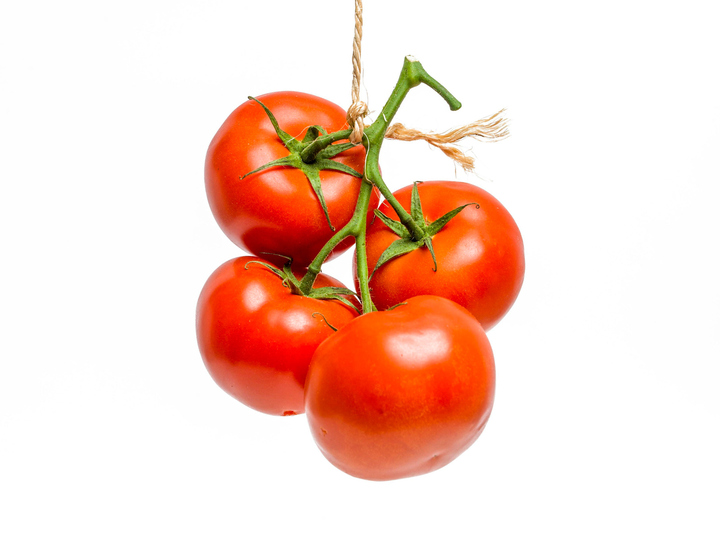Europe in crisis: a shortage of tomatoes, buns and beer is ripening
[ad_1]
The energy crisis in Europe continues to hit all spheres of the life of the Union. Rising prices for electricity, food, gas – a cruel, but already quite familiar routine for Europeans. But if the suffering of small businesses was predictable, then the risk of shutting down larger companies with a long history is an ominously looming fact that could turn into real problems.
The European Union is trying in every possible way to stop the crisis that has covered Europe due to the reduction in gas supplies. On the eve of the speech of the head of the European Commission Ursula von der Leyen, all foreign media said that she intends to propose a mandatory goal to reduce energy consumption. However, the reaction of the European economy to the crisis is already underway. And it’s getting bigger.
Belgian brewery Delirium Tremens, for example, faces a real risk of shutting down production for the first time in more than a century as an energy crisis in Europe triggered unexpected ripple effects across the region. As the newspaper notes, the gas shortage will begin to hit sectors that go far beyond utilities and energy-intensive industries. Side effects on food and beverage supplies are likely to increase as temperatures drop and households require heating.
The Huyghe brewery, located in the Belgian village of Melle, was considering closing production due to a 13-fold increase in the price of liquid carbon dioxide, which is used to make foam. The company hopes for a court decision that will prevent the supplier’s force majeure circumstances. Alain De Laet, owner of the family company, says his CO2 supplies could run out this week and cause a shutdown for the first time since 1906.
It is emphasized that the European economy is highly interconnected. The reduction in production or the shutdown of the activities of one company leads to similar events in another company that depended on it.
For example, the failures of the Belgian brewery were caused by a series of events. Bloomberg explains this scheme. Norwegian fertilizer giant Yara International ASA has stopped ammonia production at a plant in the Netherlands. This, in turn, hit the supplier Nippon Gases, who worked with the Huyghe brewery. Instead of 250 euros per ton of CO2, the supplier demanded as much as 3350 euros.
“Currently, gas-based production in Europe is not profitable,” said Tiffany Stefani, Yara’s Vice President for European Government Relations. “We continue to monitor the situation and adapt our production,” she concluded.
It looks like an excuse, under which one hears “we ourselves do not know what is happening.” The second company, which works with the Belgian brewery, honestly declined to comment, citing pending a court decision on the issue.
This story is not the only one. Carlsberg A/S also warned that it may be necessary to “significantly reduce” or stop beer production in Poland due to lack of liquid CO2. It seems that the situation is common for brewing companies and it is unlikely to be resolved in the near future.
“A couple of months ago, the industry worked like a Swiss watch. Due to the new situation with rising gas prices, it has cascaded down the value chain,” says Krishan Mogdal, head of the Belgian Brewers Association.
In general, carbon dioxide is a vital part of the food industry. It is used to stun livestock before slaughter, in packaging to extend shelf life, and as dry ice to keep food frozen during transport.
For this reason, the British online grocery service said on Tuesday that rising prices for dry ice and electricity would hit the service’s profits heavily. This also happens in the context of austerity among citizens.

German tomato, pepper and strawberry grower Wittenberg Gemuese GmbH also admits that the cessation of ammonia production means a loss of heating and hot water needed to run greenhouses. Relying on the major ammonia and urea company SKW Piesteritz GmbH, the company was left in a quandary when the manufacturer shut down operations.
The shutdown of SKW, which is currently negotiating state aid, poses other risks to the German economy. According to Bloomberg, the company covers about 40% of the country’s demand for AdBlue (an additive to reduce the harmful effects of diesel exhaust gases). Lack of additive will lead to the fact that trucks will disappear from the roads.
Bakeries are also suffering. Spagen, Sweden’s largest company, has joined other food manufacturers in warning about risks to food supplies due to a sharp rise in electricity prices and a possible power outage. And the biggest bakery knows what they’re talking about. In June, a one-second power outage affected Spagen production for as much as 4 weeks. Head of Communications and Sustainability Berit Apelgren acknowledged that the next such incidents would be “staggering”.
Belgian Prime Minister Alexandre De Cros himself has openly stated that Europe’s economy is at risk of a “complete shutdown” due to the domino effect caused by the energy crisis. He also stated in an interview that “intervention in the gas market is the main thing. If you do it right, then all other things will be less important.”
[ad_2]
Source link






